In this blog post, Nasreen Majid (Lecturer in Mathematics Education at the University of Reading’s Institute of Education) reports preliminary findings of a small-scale research project that she has been working on with Dr. Renata Bobik-Dawes (Mathematics Specialist at St. Joseph’s College, Reading). The study focuses on Year 5 and 6 pupils’ use of reflective mathematical journals to facilitate pupils’ metacognition and self-regulation.
Context
The project’s aims to develop deeper levels of thinking on mathematical processes with a group of year 5 and 6 pupils. This thinking has been facilitated through the structured use of mathematical journals that the pupils have been writing every week. The diary entries have been discussed in taught sessions in order to enable pupils to hone in on what deeper thinking looks like in the context of mathematics. The principles driving the project have been inspired by the recent work on metacognition and self-regulation from the Education Endowment Fund, (EEF, 2018).
What is Metacognition and Self-Regulation?
Metacognition and self-regulation strategies aim to engage pupils in deeper thinking about their learning processes. This is enabled by structured teaching of key strategies throughout the learning process, enabling them to plan, monitor and evaluate their own learning, (EEF, 2018). According to the EEF, (2018), clearly taught strategies that develop metacognition and self-regulation skills enable pupils to have high gains, with an average of seven months of additional progress. Finally, the professional development that can enable teachers to learn the skills to achieve these gains are cost effective, with an average spend of under £80 per pupil, (EEF, 2018).
What we did?
The project started with a survey of pupil attitudes towards mathematics. The reason for the survey was enabling a pre and post comparison of how pupils felt about their mathematics learning and if there was a change in attitudes once they had an established routine of reflecting on their mathematics learning using the journals.
The journals were introduced to the pupils and they wrote an entry every week for two terms. As the year progressed, a marked increase in deeper reflection was noticed through the journal entries. An example of timed progress can be seen in the work of Shahzaib, a pupil in year 6 in figures 1A, 1B, 1C.
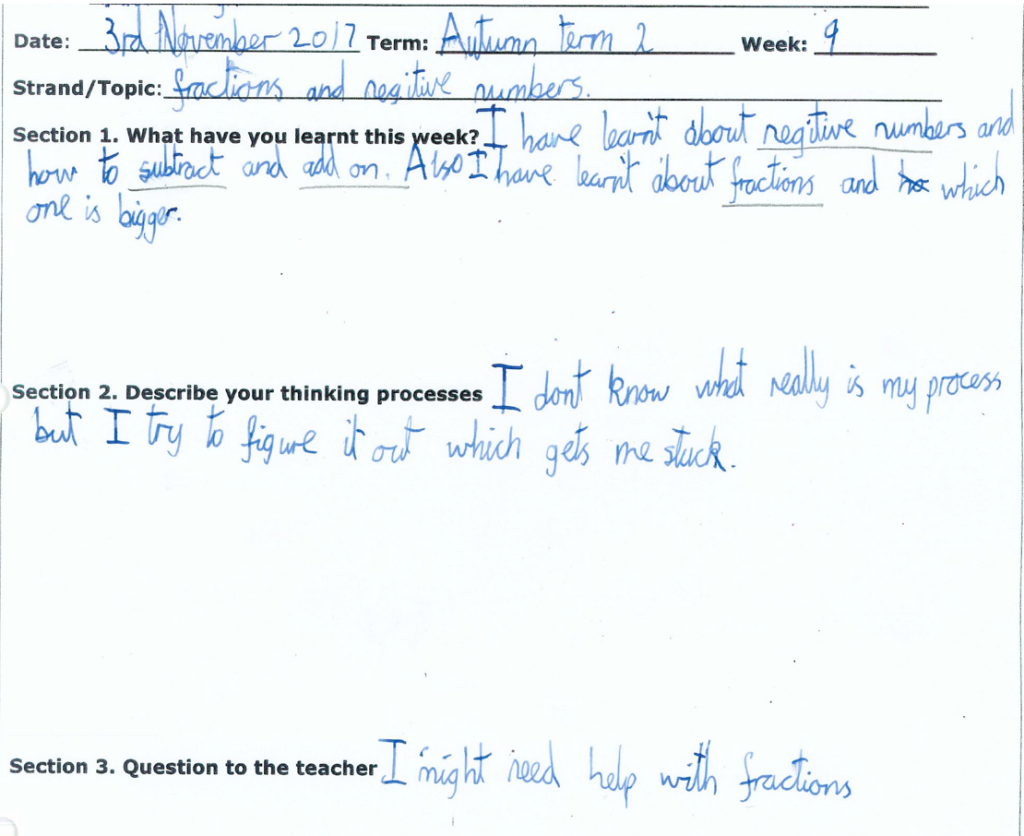
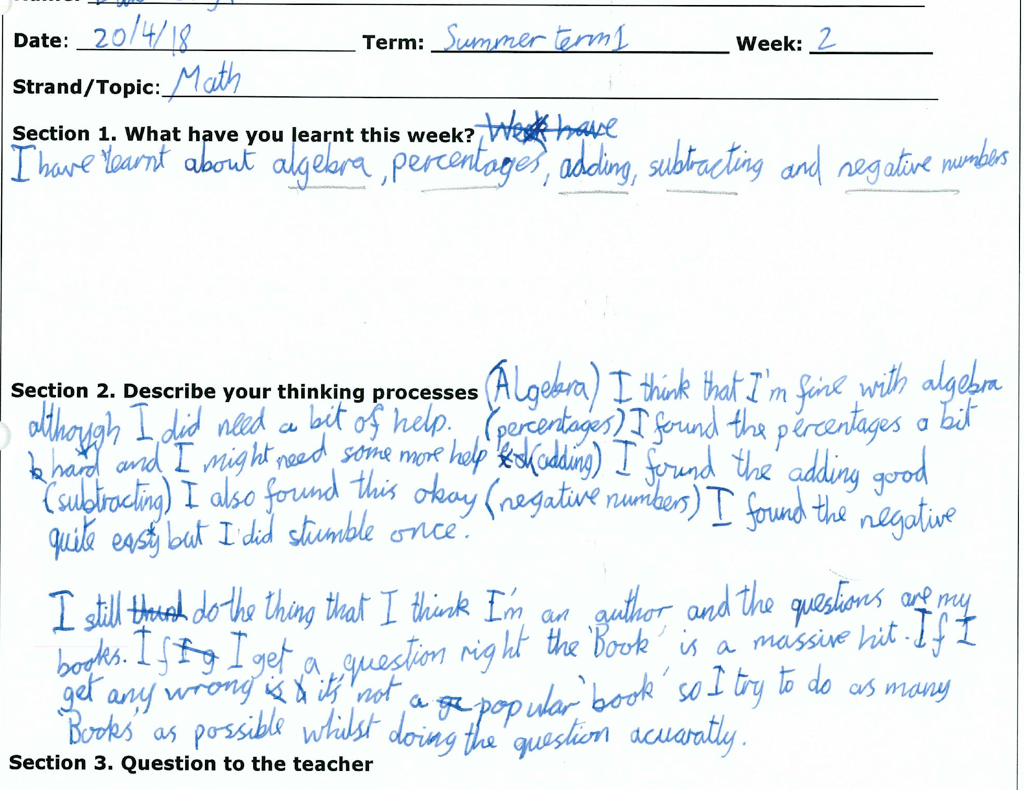
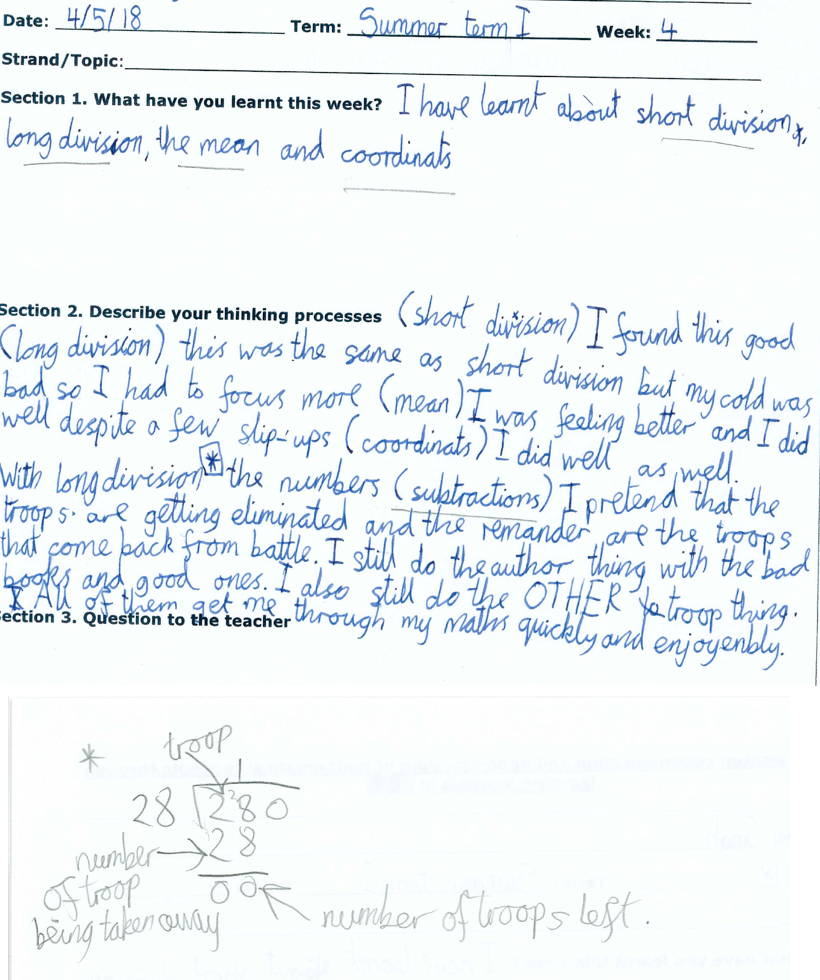
Another clear trend noted was the use of models and images to describe mathematical processes and thinking. Some examples can be seen in figures 2A, 2B, 2C.
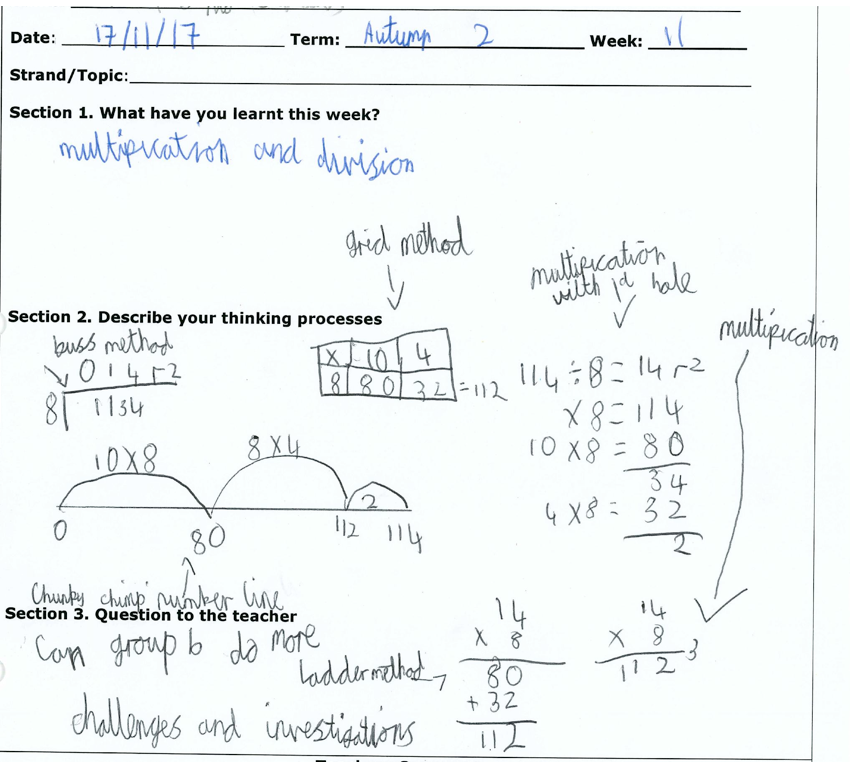
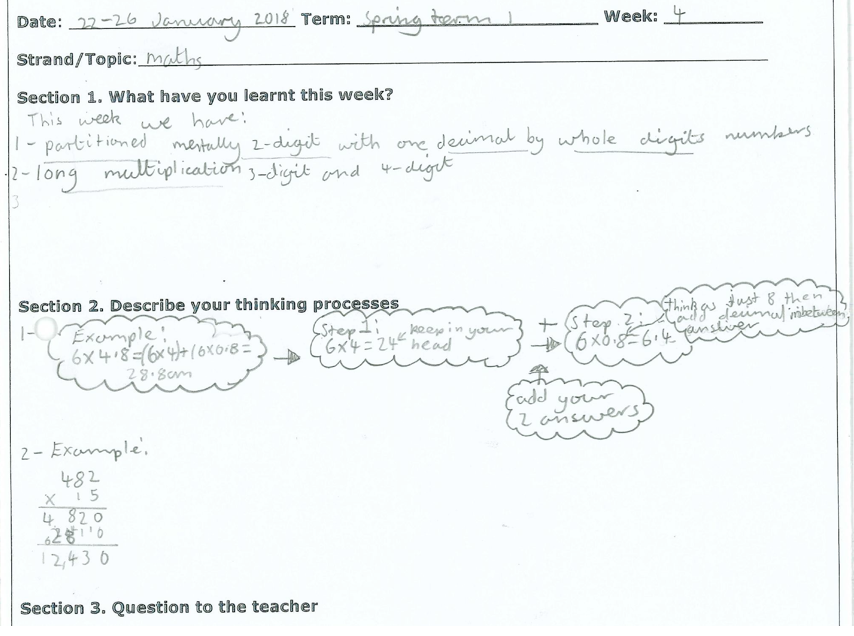
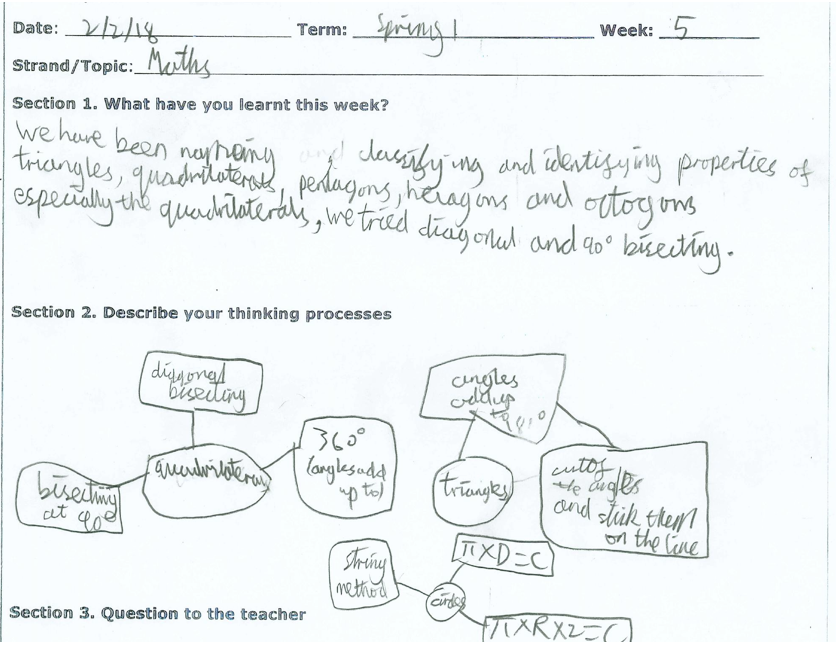
Summary
Early evaluation of the study are encouraging as the use of reflective journals in mathematics has enabled gains for pupils in their mathematical thinking. Additionally, the journals have and continue to act as formative assessment tools for the class teachers to support future learning and planning of mathematics. Furthermore, it enabled the pupils to take individual and collective responsibility for their learning in order to become successful mathematicians.
Therefore, as researchers both Renata and I are excited to continue this project and measure outcomes of cohorts taking part in the project in academic year 2018-2019.
We are grateful for the work of the EEF, (2018) to provide us with a clear tool kit to enable us to develop a bespoke project that has captured mathematical thinking in the classroom. We hope to be in a position to write up the findings for a journal article focused on practitioners.
I will leave you with a final comment from one of the pupils’ from the study:
‘I think that the mathematical journal has really helped me develop and understand my mathematics skills better than I have ever before……..This year you have opened up my mathematics vocabulary and interest.’
References
EEF. (2018). Metacognition and self-regulation: Teaching and Learning Toolkit Education Endowment Foundation April 2018 available at: https://educationendowmentfoundation.org.uk/evidence-summaries/teaching-learning-toolkit/metacognition-and-self-regulation/.
